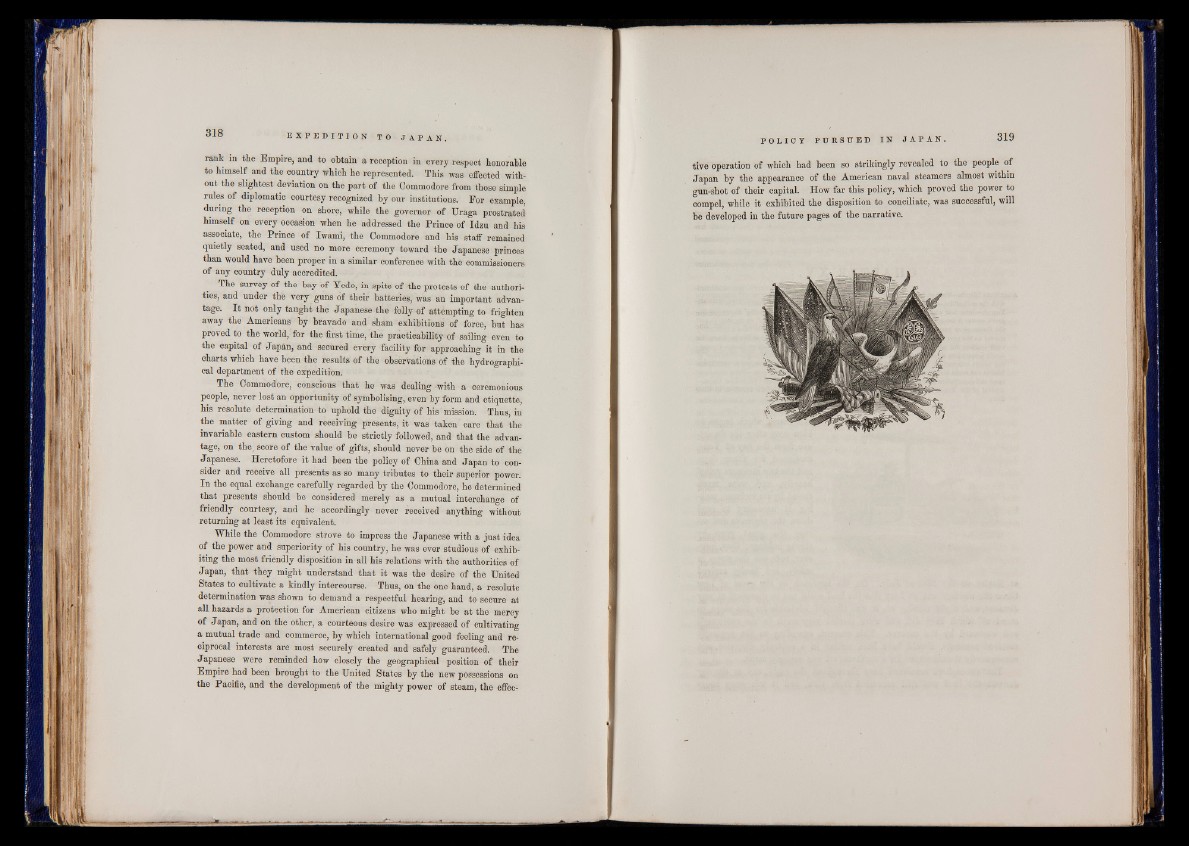
rank in the Empire, and to obtain a reception in every respect honorable
to himself and the country which he represented. This was effected without
the slightest deviation on the part of the Commodore from those simple
rules of diplomatic courtesy recognized by our institutions. For example,
during the reception on shore, while the governor of Uraga prostrated
himself on every occasion when he addressed the Prince of Idzu and his
associate, the Prince of Iwami, the Commodore and his staff remained
quietly seated, and used no more ceremony toward the Japanese princes
than would have been proper in a similar conference with the commissioners
of any country duly accredited.
The survey of the bay of Tedo, in spite of the protests of the authorities,
and under the very guns of their batteries, was an important advan-
tage. I t not only taught the Japanese the folly of attempting to frighten
away the Americans by bravado and sham exhibitions of force, but has
proved to the world, for the first time, the practicability of s a ilin g even to
the capital of Japan, and secured every facility for approaching it in the
charts which have been the results of the observations of the hydrographical
department of the expedition.
The Commodore, conscious that he was dealing with a ceremonious
people, never lost an opportunity of symbolising, even by form and etiquette,
his resolute determination to uphold the dignity of his mission. Thus, in
the matter of giving and receiving presents, it was taken care that the
invariable eastern custom should be strictly followed, and that the advantage,
on the, score of the value of gifts, should never be on the side of the
Japanese. Heretofore it had been the policy of China and Japan to consider
and receive all presents as so many tributes to their superior power.
In the equal exchange carefully regarded by the Commodore, he determined
that presents should be considered merely as a mutual interchange of
friendly courtesy, and he accordingly never received anything without
returning at least its equivalent.
While the Commodore strove to impress the Japanese with a just idea
of the power and superiority of his country, he was ever studious of exhibiting
the most friendly disposition in all his relations with the authorities of
Japan, that they might understand that it was the desire of the United
States to cultivate a kindly intercourse. Thus, on the one hand, a resolute
determination was shown to demand a respectful hearing, and to secure at
all hazards a protection for American citizens who might be at the mercy
of Japan, and on the other, a courteous desire was expressed of cultivating
a mutual trade and commerce, by which international good feeling and reciprocal
interests are most securely created and safely guaranteed. The
Japanese were reminded how closely the geographical position of their
Empire had been brought to the United States by the new possessions on
the Pacific, and the development of the mighty power of steam, the effective
operation of which had been so strikingly revealed to the people of
Japan by the appearance of the American naval steamers almost within
gun-shot of their capital. How far this policy, which proved the power to
compel, while it exhibited the disposition to conciliate, was successful, will
be developed in the future pages of the narrative.